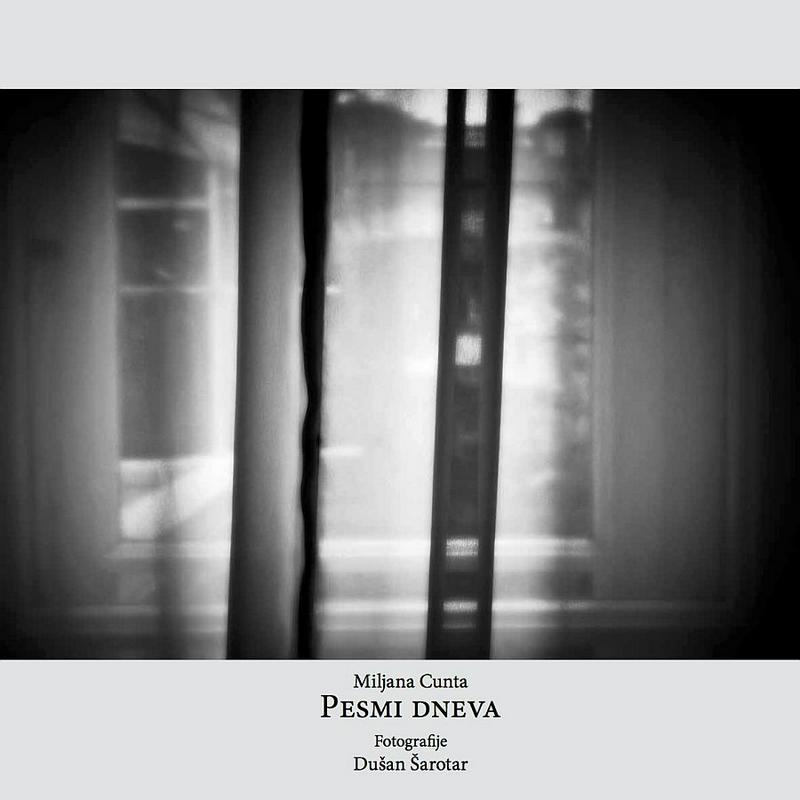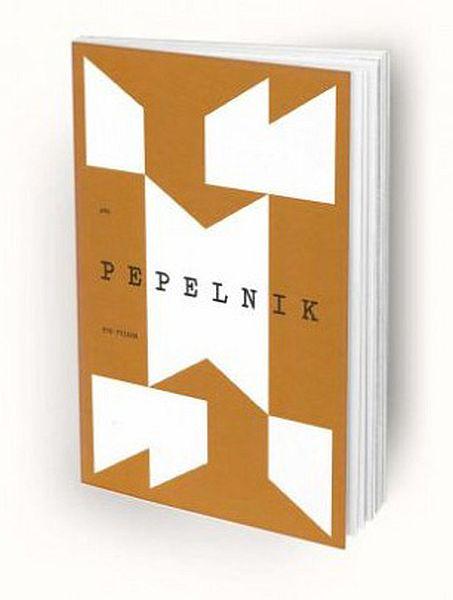


MILJANA CUNTA
Miljana Cunta (1976) completed her MA in English Victorian Poetry at the University of Ljubljana. Both her poetry collections, Za pol neba (By Half the Sky; 2010) and Pesmi dneva (Poems of the Day; 2014), were shortlisted for the most important national literary awards. She translates English and Italian poetry into Slovene. In 2013 her debut collection was published in Italian translation by Miha Obit (Thauma Edizioni). Miljana Cunta regularly appears at literary festivals in Slovenia and abroad. She lives with her family in Ljubljana.
Tulips
© Miljana Cunta, translated by Giovanna Riccio
Some
discover tulips
growing in their bellies,
marvel each morning at their shades and hues,
notice sun beams on stems
and eavesdrop on neighborhood chatter
seeking names to fit.
Late at night they consider
sourcing heat-resistant bulbs.
Whenever darkness overtakes the sky
and we others pause to wonder
if again it will rain
frogs and locusts
with eyes half-closed, they sense the garden
knowing that this too will pass.
Whenever we others
lift hopeful eyes
to catch a glimpse of beauty
they simply outstretch a hand.
Whenever we others
step out on a journey
they loosen laces
and barefoot step
into vibrant flowerbeds.
In time, like all things
tulip season fades
they rest in withered flowerbeds
and wait,
knowing that like all things
waiting too will pass.
When like all things
all things too have passed
their eyes half-closed
tulips appear.
“Miljana Cunta’s feminine poetry is like a submerged world that can be touched and used as a foothold to swim up towards the light …Her revelations about the world are articulated in a highly poetic manner; Centa is a poetess for attentive and thoughtful readers.” (Poetry and fiction writer Jurij Hudolin on Miljana Centa’s poetry)
ANJA GOLOB
Anja Golob (1976) is a poet, writer and translator. After studying Philosophy and Comparative Literature at the Faculty of Arts in Ljubljana, she worked as a professional theatre critic. Occasionally she still works as a dramaturg for contemporary art and dance performances. In 2013 she co-founded a small publishing house called VigeVageKnjige. She has published four books of poetry so far, three in Slovene, one in German translation, which was very well received by international critics. For her second poetry collection (Vesa v zgibi, 2013) she was awarded the main Slovene poetry prize (the Jenko Prize) in 2014. She lives between Ljubljana and Brussels.
The Body is Resting
© Anja Golob, translated by Andrej Pleterski
the body is resting
a body full of sand
a body without organs without limbs without thoughts without
a body sackcloth stuffed with
what others have said
a body a membrane
a boundless yet intangible border
an outline lacking every value
assigning meanings and sense to everything beyond itself
a place everything distinguishes from
yet only insofar as it exists as a place though empty
a sketch of a form letting water through
neither itself nor the stars nor chapters nor the soil
a body an elastic means of wittily knotted bones
a tarpaulin of passion an insect in the machinery
a dog licking itself
entirely automatically
the body is resting
and there is no force persistent enough to make it move
no water mighty enough
no enough watery air
a body a sharp note in the constellation of time
the only one to crackle the sound on its own
rip the air undulate the water cut the force
the point setting into motion all others while staying perfectly still itself
like a proto-atom in the Democritus’ box
this beautiful place of pure nothingness
only pretending to mean something
“Anja Golob has written one of many perfect poems of simplistic magnificence that deserve to be included in the anthology of world poetry.Moreover, it is poems like this one that could help Slovene, a language often overseen amidst other European languages, to make a lasting impression, reminding “world languages” of their overly expressed self-importance.” (From a review by Jürgen Brôcan at fixpoetry.com on 26th May 2015).
LUCIJA STUPICA
Lucija Stupica (1971) is a poet and an interior designer. Her first book of poetry Čelo na soncu [Forhead in the Sun], published in 2000, was awarded two national prizes. Since then she has published two critically acclaimed books of poetry, Vetrolov (Windcatcher; 2004) and Otok, mesto in drugi (The Island, the City and the Others; 2008), leading up to her being awarded the prestigious 2010 German Hubert Burda Prize for young Eastern European poets. She currently resides in Sweden, where she was awarded the 2014 Klas de Vylder scholarship for best writer born outside of Sweden. Her poetry has been translated into more than fifteen languages worldwide.
The Bed
© Lucija Stupica, translated by Andrej Pleterski
We are standing in front of a painting.
Wrinkled bedding,
two pillows left behind,
the silhouettes of an invisible body—
the traces of everything remaining
after loving, in isolation,
after youth, in aging,
after leaving, in waiting.
The articulation of a possible story,
about someone sleeping alone,
about not being able to sleep,
about looking for someone else.
We attempt to enter the picture, the space,
then to withdraw and hear, feel the difference,
read the anatomy of an absent body.
Our attempts bring us to the unspeakable.
We end up in a white shirt, alongside
the bed, which is still awaiting its time.
A few moments ago:
We are sneaking in a ring of streets,
lying parallel, less accessible,
to hide in a world belonging to ourselves only,
as always, not at all commonplace.
Yet our ways eventually lead up to the Piazza.
“This is the painter I was telling you about, remember?” I say
as we run down the stairs of the museum hand-in-hand,
all fired up in the fresh promise of love,
oblivious of the expiration date marked somewhere.
“Lucija Stupica’s poetry shows that understanding is not just utopia, but also a potential reality. This possibility is reflected in sharply drawn images as well as in the sound of the voice.” (From a review by Jenny Tunedal in Literatura No. 270/2013).
ANA PEPELNIK
Ana Pepelnik (1979) published her first book of poetry, Ena od variant, kako ravnati s skrivnostjo (One of the Ways How to Treat a Secret), almost ten years ago. The book was followed by Utrip oranžnih luči na semaforjih (The Orange Pulse of Traffic Lights, 2009) and Cela večnost (A Whole Eternity, 2013). Recently, Ana Pepelnik has issued her most comprehensive volume, Pod vtisom (Under an Impression). In this unique artistic experiment, poems are a collage of verses crafted by the poets that have affected Pepelnik most profoundly. When she does not write poetry, she translates from English ̶ her most recent translated authors include Joshua Beckman and Jennifer Clement. She finds it easier to write when she is miserable than when she is happy. She still believes that poetry can change the world and that all poems are in fact love songs.
Above the stars
© Ana Pepelnik, translated by Jasmin B. Frelih
Time is motionless. Somehow
stopped. The air is filled to its edge
with cicadas and as we go lower
the ocean recedes.
Above your head the steep cliffs
are dangling all the time. In the end
I just stared at the stars in the ocean
and left my thoughts behind. There was
nothing else for me to do. The beat of the ocean.
Everything is now left to revolve around space.
Because it is everywhere. In every poem touch
above every sky. And that is why the ocean
now keeps the beat. I suddenly think of you.
How would you hold out beside me sitting
in this darkness and looking at the night in the ocean.
Looking at how all the stars will fall into it.
Maybe without a problem. Quiet and happy.
“The poems of Ana Pepelnik are consistently executed exercises in style, playfully juggling what is grasped in the hand or glance through linguistic frolics, varied formal structure, and indifference to grammar rules.”(Literary critic and translator Tanja Petrič on Ana Pepelnik’s poetry)

































































